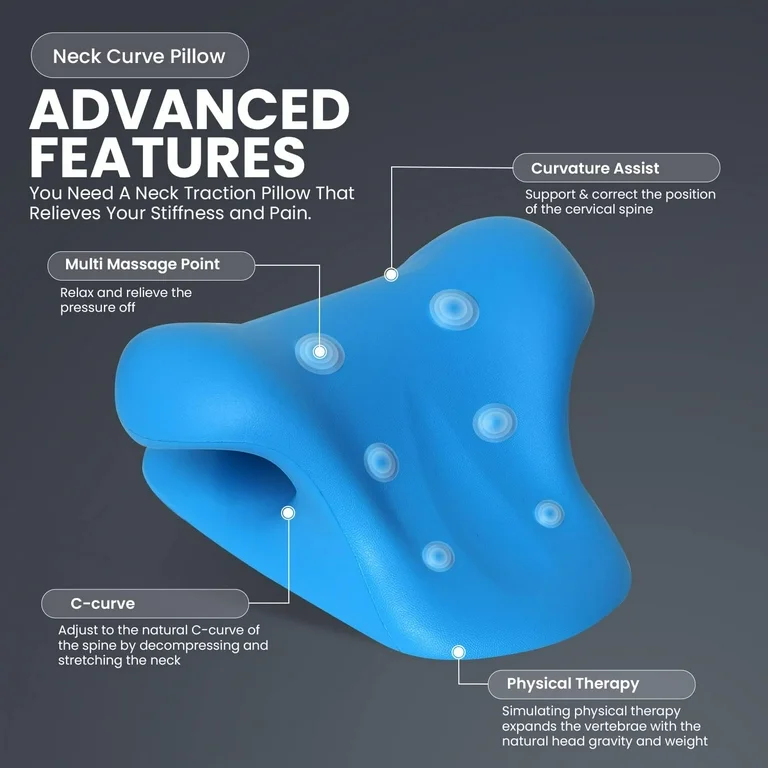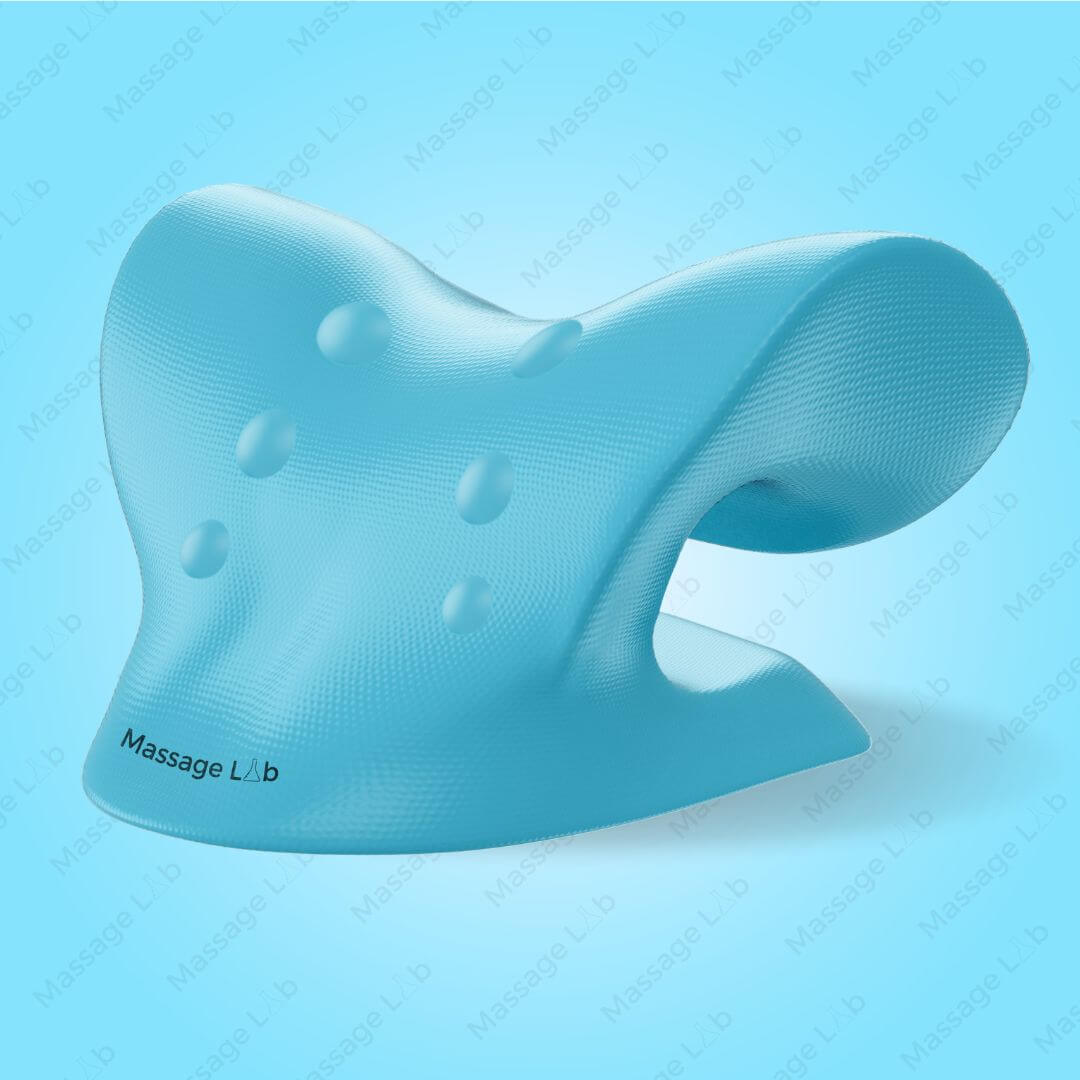Get Long Lasting Alleviation with the Neck Cloud: The Ultimate Neck Assistance
Get Long Lasting Alleviation with the Neck Cloud: The Ultimate Neck Assistance
Blog Article
The Impact of Anxiety on Neck Pain: Techniques for Reducing Stress and Discomfort
In today's hectic world, it's no secret that stress has come to be a widespread element in the beginning and exacerbation of neck discomfort. Join us on a journey to untangle the effect of tension on neck pain and discover reliable means to relieve pain and boost general quality of life.
Comprehending Stress-Related Neck Discomfort
Stress-related neck pain can manifest as stress, tightness, or discomfort in the neck and shoulder area. The link in between tension and neck pain exists in the body's physiological feedback to anxiety, which can result in muscular tissue stress and tightness in the neck muscles.

Identifying Common Tension Locations
Frequently experienced by individuals under stress and anxiety, stress locations in the body can offer useful insights right into the physical symptoms of psychological strain. One usual stress location is the neck, where anxiety typically manifests physically. Stress migraines, rigid neck muscles, and limited variety of activity are common signs and symptoms of stress-related neck tension. The shoulders are one more typical location where stress builds up. Anxiety can create the muscles in the shoulders to tighten, causing pain and discomfort. Additionally, the upper back is susceptible to stress accumulation, specifically in individuals that experience persistent stress and anxiety. Poor posture and prolonged sitting can worsen stress in this location. The jaw is additionally a common location for stress-related tension, as numerous people clinch their jaw or grind their teeth when worried. Being mindful of these usual stress locations can aid people recognize the physical signs of stress and take steps to resolve them prior to they escalate into persistent pain or discomfort.
Executing Relaxation Strategies
To properly take care of stress-related stress in the body, executing relaxation strategies is critical. Leisure techniques are valuable devices for minimizing neck pain brought on by stress and anxiety. Deep breathing workouts can help relax the mind and kick back strained muscles in the neck and shoulders (neck cloud). Exercising mindfulness meditation can also be beneficial in relieving stress and anxiety and advertising relaxation. Dynamic muscle mass relaxation, where you methodically strained and afterwards kick back different muscular tissue groups, can launch built-up tension in the neck location. Furthermore, tasks like yoga and tai chi include both physical motion and leisure, making them efficient practices for minimizing tension and neck discomfort. Taking regular breaks throughout the day to stretch and loosen up can prevent muscular tissue stiffness and stress from accumulating. By integrating these leisure methods right into your daily regimen, you can aid handle stress and anxiety levels, minimize stress in the neck, and minimize pain related to stress-induced neck pain.
Integrating Self-Care Practices
Integrating self-care techniques is essential for maintaining total wellness and handling stress-related neck pain successfully. Taking part in normal physical task, such as mild extending workouts or yoga exercise, can aid relieve stress in the neck and shoulders. Exercising excellent stance throughout the day and taking constant breaks from long term resting or display time can additionally protect against pressure on the neck muscles.
Moreover, focusing on appropriate sleep and establishing a consistent sleep regimen can add dramatically to lowering stress and anxiety degrees and promoting relaxation. Creating a relaxing going to bed regimen, such as checking out a book or taking a cozy bathroom, can assist prepare the body and mind for restful rest. Furthermore, preserving a balanced diet regimen abundant in nutrients and staying hydrated can sustain general health and reduce swelling that may exacerbate neck discomfort.
Integrating mindfulness practices, such as deep breathing workouts or reflection, can help take care of anxiety and promote leisure. Requiring time for oneself, participating in hobbies, and establishing limits look at this site to safeguard individual time are likewise important facets of self-care that can contribute to reducing anxiety and easing neck pain.
Looking For Professional Aid
Exactly how can people effectively deal with consistent neck discomfort that is impacting their that site everyday life and well-being? Looking for specialist help can be an important action in handling and reducing neck pain.
Chiropractors focus on spine adjustment strategies to improve alignment and decrease tension in the neck area. Physiotherapists use targeted workouts and stretches to strengthen muscle mass, boost adaptability, and enhance general neck function. Orthopedic experts can supply sophisticated clinical treatments such as shots or medical alternatives for extreme instances of neck discomfort.
Verdict

Stress-related neck discomfort can materialize as stress, rigidity, or discomfort in the neck and shoulder area. The connection between tension and neck pain lies in the body's physiological reaction to anxiety, which can result in muscle mass stress and rigidity in the neck muscle mass. Tension migraines, rigid neck muscle mass, and restricted range of motion are common symptoms of stress-related neck find more info stress. By including these leisure methods into your day-to-day regimen, you can assist handle stress degrees, decrease tension in the neck, and alleviate discomfort connected with stress-induced neck discomfort.

Report this page